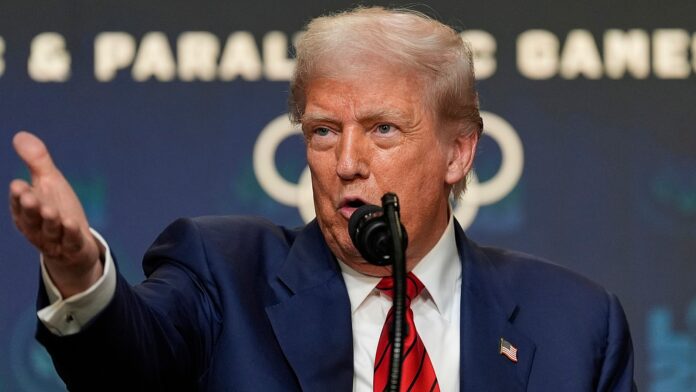The recent U-turn by Donald Trump on tariffs has sent ripples through the global trade community, with significant implications for Bharat–US relations. Long considered strategic partners, the two democracies have often struggled to balance economic nationalism with mutual dependence in trade, technology, and security. Trump’s latest stance reopens old wounds and raises questions about whether the two countries can repair their ties amid shifting geopolitical and economic realities.
Background: The Tariff Saga
During Trump’s earlier tenure, his “America First” policy had strained US relations with several key partners, including Bharat. Tariffs were imposed on steel, aluminum, and certain manufactured goods, prompting retaliatory measures from New Delhi. While dialogue channels remained open, trade disputes often overshadowed strategic cooperation.
Trump’s U-turn—reviving the tariff debate—signals a return to protectionist instincts, despite earlier signs of accommodation.
Why Bharat Matters to the US
-
Economic Growth Market: Bharat is one of the fastest-growing major economies and an attractive market for US exports.
-
Strategic Partner: Both nations are key players in the Indo-Pacific strategy to counterbalance China’s rise.
-
Technology and Defense Ties: Cooperation spans critical areas such as semiconductors, defense production, clean energy, and AI.
-
Diaspora Influence: The Indian-American community remains a powerful bridge between the two nations.
Any disruption in economic ties could ripple into these broader strategic dimensions.
Challenges for Bharat
-
Export Vulnerability: Tariffs could hurt Bharat’s exports in IT services, textiles, and metals.
-
Investment Uncertainty: US firms may hesitate on fresh investments if trade frictions escalate.
-
Balancing Act: Bharat must balance its domestic industry’s concerns while preserving its growing global trade profile.
Pathways to Repairing Ties
-
Negotiated Trade Deals
Both countries may revisit stalled negotiations for a mini-trade deal covering tariffs, agricultural products, and market access. -
Strategic Convergence
Strengthening cooperation on defense, energy security, and supply chain resilience could offset economic tensions. -
Diaspora Diplomacy
Mobilizing the Indian diaspora in the US may soften Washington’s stance and rebuild bipartisan support. -
Diversification
Bharat may also hedge by deepening ties with Europe, ASEAN, and Africa, ensuring that tariff shocks do not overly impact its exports.
Trump’s U-turn on tariffs has rekindled tensions that Bharat and the US had hoped were behind them. Yet, the depth of their strategic, technological, and people-to-people ties makes a complete rupture unlikely. The question is whether both sides can use this moment not as a setback, but as a springboard to reset trade ties on a more balanced, future-ready footing.
The stakes are high: the future of Bharat–US ties may hinge on whether trade disputes can be managed without derailing the broader strategic partnership.



